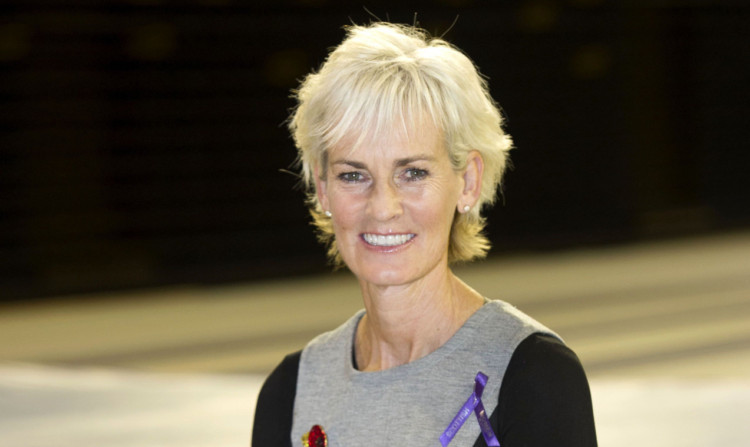Researchers discovered 12 per cent of men in Argyll and south Scotland carried the M222 chromosome, which is believed to have been introduced over from Ireland from the fifth century, when Irish invaders crossed the North Channel. These men are believed by the researchers to be direct descendants of the primary Irish High King – Niall Noigiallach. Most individuals in Scotland will say they’re Scottish quite than British.

Lexical Phonology and the History of English. Cambridge University Press. p. 142. Crystal, David (25 August 2003). The Cambridge Encyclopedia of the English Language.
Scottish English quickly became the dominant language. By the top of the 17th century, Scots had practically ceased to exist, no less than in literary kind.[eighty one] While Scots remained a common spoken language, the southern Scottish English dialect was the popular language for publications from the 18th century to the present day. Today most Scottish people converse Scottish English, which has some distinctive vocabulary and may be influenced to varying levels by Scots. From 1801, in order to symbolise the union of the Kingdom of Great Britain with the Kingdom of Ireland, a new design was adopted for the flag of the United Kingdom of Great Britain and Ireland.[thirteen] The 1801 design, having remained unchanged regardless of the partition of Ireland in 1921 and creation of the Irish Free State, continues for use because the flag of the United Kingdom of Great Britain and Northern Ireland. The modern individuals of Scotland stay a mix of totally different religions and no faith.
There, in Cape Breton, the place both lowland and highland Scots settled in large numbers, Canadian Gaelic is still spoken by a small number of residents. Cape Breton is the house of the Gaelic College of Celtic Arts and Crafts. Glengarry County in current-day Eastern Ontario is a historic county that was set up as a settlement for Highland Scots, where many from the Highlands settled to protect their culture in result of the Highland Clearances. Gaelic was the native language of the group since its settlement within the 18th century though the variety of speakers decreased since as a result of English migration[clarification wanted].
During 1997–1998 two polls have been undertaken. During the first when asked about their national identification fifty nine percent of the people polled acknowledged they had been Scottish or more Scottish than British, 28 percent stated they had been equally Scottish and British, whereas 10 percent stated they were British or extra British than Scottish. In the second poll fifty nine % of the individuals polled acknowledged they were Scottish or extra Scottish than British, 26 % acknowledged they were equally Scottish and British, whereas 12 % said they had been British or extra British than Scottish. “Genealogy”. Scotland Now – Government of the United Kingdom (1).
Related articles
Scots helped to popularise and unfold the game of association soccer; the primary official international match was performed in Glasgow between Scotland and England in 1872. According to the Social Scottish Attitudes analysis, 52% of Scottish individuals identified as having no faith in 2016.[ninety] As a end result, Scotland has thus become a secular and majority non-non secular country, unique to the other UK international locations[clarification wanted].
When you walk around the streets in Scotland, you will note most ladies rocking cozy denims, plaid t-shirts, and hoodies. However, you need to know that these women are very good at cleansing up and may look absolutely gorgeous if they will an necessary event. When excited about Scottish women, you in all probability have a very specific picture in your head.
Flying the flag[change
People born in Scotland are called Scottish or British and might say that they stay in Scotland, Britain and/or the UK. People born in England are called English or British and can say that they live in England, Britain and/or the UK. Most folks in England are inclined to say they are British rather than English. Most white people born in Great Britain, although British citizens, do not regard themselves as British and like to state their national identification as English, Scottish or Welsh. England is just one of the three nations in Britain (Scotland, England and Wales).
Scottish folks
Scotland has seen migration and settlement of many peoples at different periods in its historical past. Germanic peoples, such as the Anglo-Saxons, arrived starting in the 7th century, whereas the Norse settled parts of Scotland from the 8th century onwards. In the High Middle Ages, from the reign of David I of Scotland, there was some emigration from France, England and the Low Countries to Scotland. Some well-known scottish girl Scottish family names, together with those bearing names which grew to become Bruce, Balliol, Murray and Stewart, came to Scotland presently.
This recollects how, in 832, on the eve of a battle between a mixed Picts and Scots military and an invading military of Angles led by King Aethelstan of East Anglia, Saint Andrew appeared to the Pictish king, Óengus II (Angus) and guaranteed him of victory. The following morning a formation of clouds gathered against the backdrop of a clear blue sky, depicting a white saltire that was visible to both sides. The omen inspired the Picts and Scots to win a famous victory over the Angles of King Aethelstan and so the white cross on the blue background was adopted because the national flag of Scotland. With a history stretching back so far as the 11th century, Scottish whisky – also known as Scotch – is a vital part of our identification in Scotland. Like the drink itself, the story of whisky-making in Scotland is fascinating and complicated.



